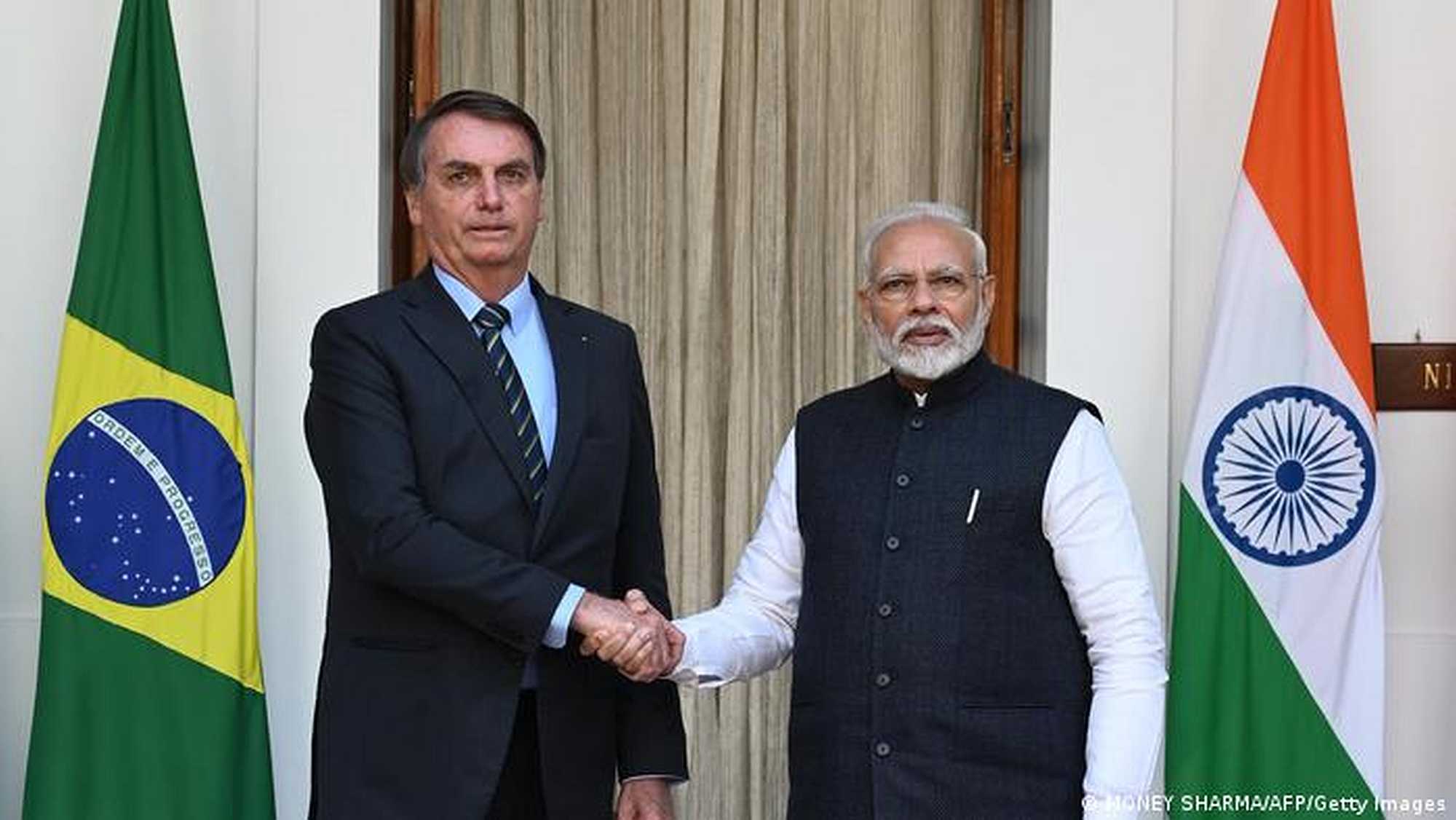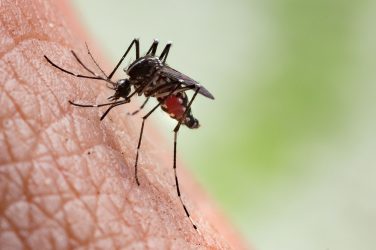India recently pushed Brazil out of the media spotlight with its surge in coronavirus case numbers. Covid-19 infection and death rates in both countries have reached national highs in recent weeks.
Last week, the two nations case numbers accounted for more than half of all new infections globally. Despite such worrying statistics released by the World Health Organization, neither administration is prepared to impose a nationwide lockdown to help curb the Covid-19 pandemic.
The similarities don’t end there: Both nations are members of BRICS, a group of major emerging economies, and both struggle with massive income inequality.
Besides having a wealthy minority and a small middle class, many people in India and Brazil live in abject poverty. The countries also have far-right nationalist governments gnawing at democratic institutions with the help of religious zealots.
A Hard Lockdown Vs. Coronavirus Skepticism
Despite these parallels, Amrita Narlikar, president of the German Institute of Global and Area Studies (GIGA), warns about jumping to conclusions.
“There is a tendency in the so-called liberal West to lump countries in the global South together,” she said. “But analysts and observers need to be very careful when drawing on similarities.”
Beyond the obvious cultural contrasts, Narlikar points to blatant differences in the handling of the coronavirus crisis.
Brazil’s President Jair Bolsonaro has never budged from his position that Covid-19 is nothing more than a “minor flu,” best treated with a malaria drug than a vaccine.
Meanwhile, India’s Prime Minister Narendra Modi imposed possibly one of the world’s strictest lockdowns from March until May last year. He also set India up to be one of the biggest vaccine producers.
“Unlike Bolsonaro, Modi recognized how high the human cost could be,” said Narlikar. “But the current situation shows he didn’t take the time to prepare the country for a second wave.”
That is why both countries have taken very different infection trajectories.
Ever since the detection of the coronavirus in Brazil 15 months ago, case numbers there have been significantly higher than in India. Brazil reached its peak seven-day incidence rate of 254 new infections per 100,000 people in late March, according to statistics published by Our World in Data. As of May 3, 2021, its incidence is slightly above 190.
On the other hand, India’s infection numbers remained relatively low for a long time after the lockdown. Perhaps it was this success that emboldened Modi to sit back when the number of cases started rising again. Since then, the seven-day incidence rate — in a country of 1.4 billion people — has shot up from 12 to 193.
Brazil and India are now on par in terms of rates of infection. Several countries report higher infection rates: Uruguay, Sweden and the Netherlands. Most governments take action against the spread of Covid-19 at the very latest when the incidence reaches triple figures.
It is no surprise then that India’s opposition and civil rights organizations have been increasingly vocal about imposing a national lockdown.
“Modi has been under enormous pressure since late 2020 because of the ongoing farmers’ protests,” said political scientist Jörg Nowak.
On India’s National Day in January, protests against the controversial agricultural reform escalated.
But Modi still controls a relatively stable power base, according to Nowak. With the backing of the Hindu nationalist BJP, he enjoys the support of a major party with a stringent ideology. He is also part of Rashtriya Swayamsevak Sangh (RSS), a paramilitary volunteer organization whose ideology gave rise to the BJP. When it ran for reelection in 2019, the BJP increased its majority in parliament.
Bolsonaro’s Support Is Dwindling
Brazil’s Bolsonaro also counted on religious supporters, though he came to power with the help of conservative evangelicals. Before his rise to power, he was a relatively unknown backbencher for a minor party which he broke ties with in 2019, barely a year after his inauguration.
Without party affiliation, Bolsonaro has had to gather a majority to pass every law. This becomes more and more difficult as alliances turn to feuds — for example, with the 16 ministers he has replaced.
Now the president must answer to a parliamentary investigative committee about his handling of the Covid crisis and the country’s 400,000 registered coronavirus deaths.
“Bolsonaro’s power is visibly eroding,” said Nowak, who is currently undertaking research at the University of Brasilia. “No one seems to quite know what the government line is anymore, and there are different centers of power — like the parliament and senate leaders who all have different agendas.”
Rule of Law in Danger in India
Both Bolsonaro and Modi seem to be willing to undermine the rule of law to enforce their policies. While Bolsonaro has mainly threatened to do this — probably because he lacks the power — Modi has already taken action.
After Modi’s reelection in 2019, India’s government stripped the state of Jammu and Kashmir, the only one with a majority-Muslim population, of its constitutional right to self-rule.
The following year, the state’s pressure on political opponents became so severe that human rights organization Amnesty International halted its operations in India.
This February, the government pressured Twitter to delete more than 500 accounts related to the farmers’ protests.
“Such an occurrence would be unthinkable in Brazil — at least at the moment,” said Oliver Stuenkel, a political scientist and BRICS expert with the Getúlio Vargas Foundation. “The erosion of democracy is much more advanced in India than in Brazil.”
“Populists like Bolsonaro and Modi don’t need more bad news,” he said.
That is why Bolsonaro consistently talks down the Covid crisis, while Modi’s BJP declared the end of India’s coronavirus epidemic back in February.
It remains a mystery to experts as to why the Indian government does not acknowledge its mistake and change course. The state was less than transparent when it imposed the early, hard lockdown in 2020, says Stuenkel, and that is the case again this time around.
One assumption is that Modi did not want to compromise religious festivals or election campaign events. It could also be that, like Bolsonaro in Brazil, Modi is dreading the economic impact another lockdown might have on the country. In the second quarter of 2020, India’s economic output fell by almost 25%.
“In both countries, at most a quarter of employees can work from home. The short term economic costs of social distancing measures are relatively high,” said Stuenkel.
That is a commonality GIGA President Amrita Narlikar also sees between the two countries.
“Both Brazil and India have a problem when the government imposes a lockdown, because they present their people with an impossible choice of either living and making a living,” she said. “That is different from Germany, where the choice is between life and lifestyle.”
However, Narlikar emphasizes, it never would have come to this if both governments had taken adequate measures to combat the pandemic.
DW






